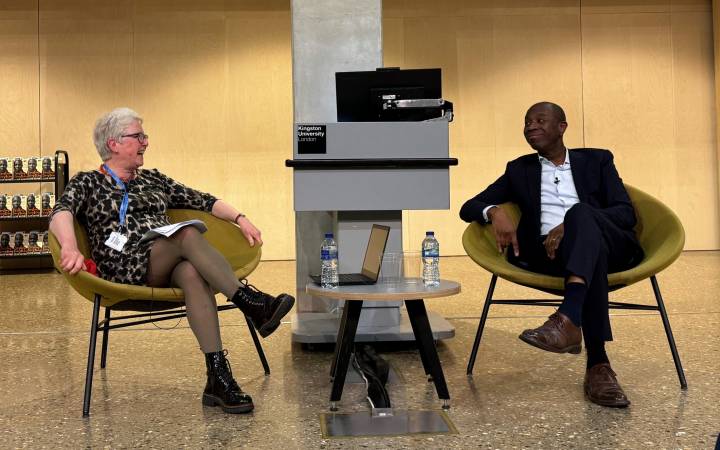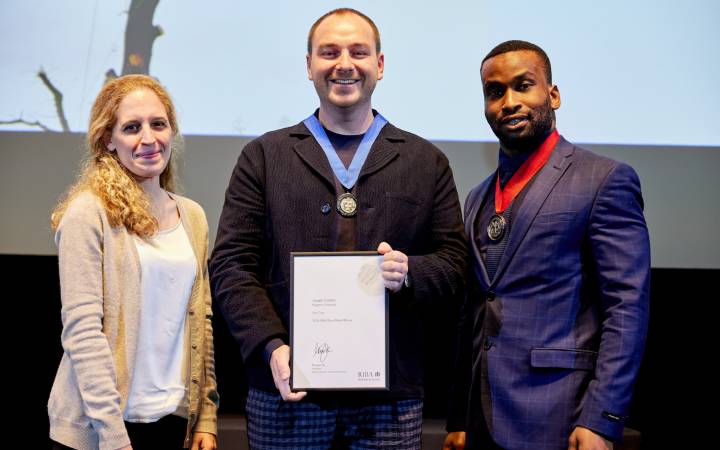Dr David Mackintosh reflects on wide-ranging career at Kingston University as he prepares to retire after 36 years
Posted Wednesday 29 May 2024
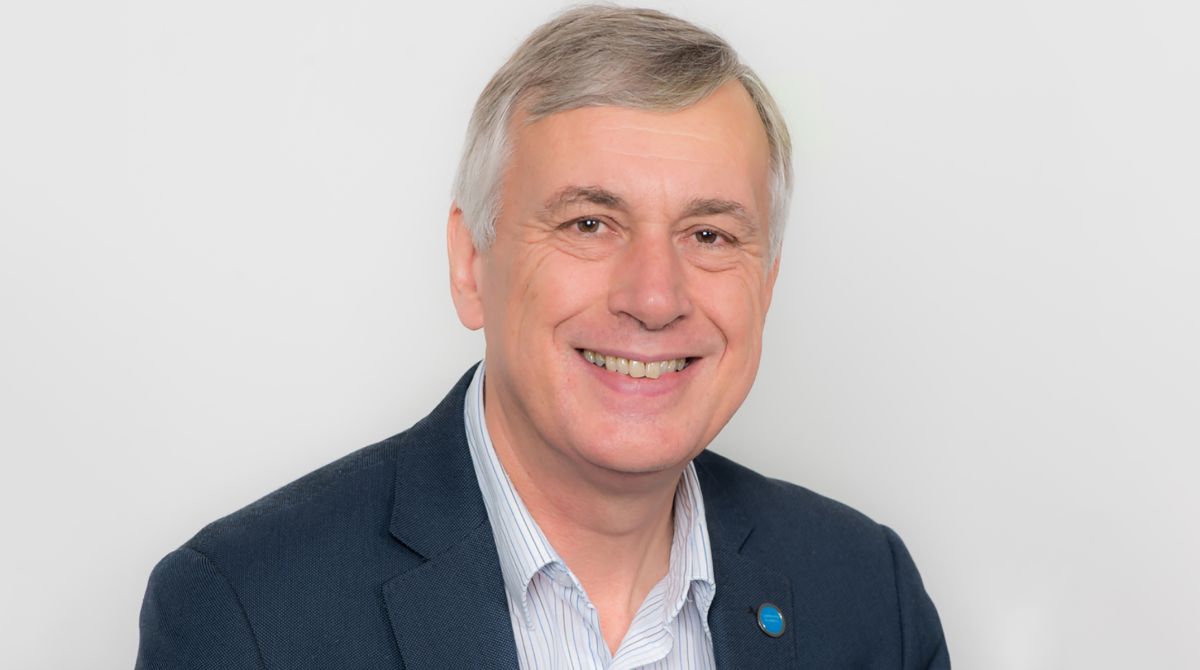
In a career spanning three decades – from lecturer to leadership roles including Faculty Dean, Deputy Vice-Chancellor and, for a short spell, Acting Vice-Chancellor – it's fitting that Dr David Mackintosh has spent his final few years at Kingston in a role focused on shaping its future.
As he retires as Pro Vice-Chancellor for Strategy this week, the father-of-three reflects on the huge change he has seen at the University during the past 36 years, as well as some of his proudest moments at Kingston.
Starting out in biochemistry and diabetes research
Growing up in Elm Park, East London, David was the first in his family to go to university, undertaking a biochemistry degree at the-then University of Kent at Canterbury. He went on to do his PhD at Guy's Hospital, spending eight years working in medical research before going on to be a post-doctoral researcher and lecturer at Charing Cross Hospital Medical School.
While at Guy's, David was involved in the successful clinical trials of recombinant DNA-produced human insulin in the early 1980s. "Genetic engineering was in its infancy with applications just coming through. There was a huge amount of national and international media interest and it was quite something to be part of a team involved in such an important step forward with the treatment of diabetes at that time," he said.
Early years at Kingston to first Faculty Dean role
In his first few years as a senior lecturer at Kingston, David was part of a rapidly growing biology and biomedical science department, going on to become Deputy Head of Life Sciences and then Acting Head of School, before successfully applying for the role of Dean of the then-Faculty of Science in 2004. He was also involved in the development of the South West London Academic Network (SWan), an alliance with Royal Holloway and St George's, University of London, that provided biomedical science students with the opportunity to study across the three institutions, including through remote teaching.
Bringing graduations to the borough
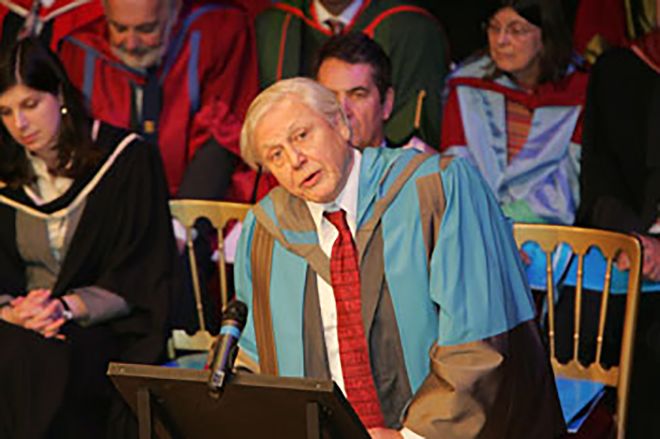 Sir David Attenborough delivering a speech after receiving an honorary doctorate from Kingston University during the first year graduations were held at the Rose Theatre in 2008.
Sir David Attenborough delivering a speech after receiving an honorary doctorate from Kingston University during the first year graduations were held at the Rose Theatre in 2008.
Kingston University graduations are now synonymous with the borough's Rose Theatre, but that wasn't always the case. Until 2008, graduations were held in the Barbican Centre in central London.
With the opening of the Rose that year, David led on a pilot project to bring ceremonies in to the town centre and was delighted when leading broadcaster and naturalist Sir David Attenborough agreed to attend the inaugural ceremonies and accept an honorary award.
"The Barbican was a good venue but it just wasn't in Kingston," he said. "I was nervous ahead of those first ceremonies but Sir David Attenborough was brilliant, he brought the house down with speeches across both ceremonies. People were coming up to us in the street saying how fabulous it was to see all the students celebrating their achievements. I'm proud we were able to deliver that and I do think moving graduations to the Rose has made a difference and helped build our town and gown relationship."
Senior leadership career
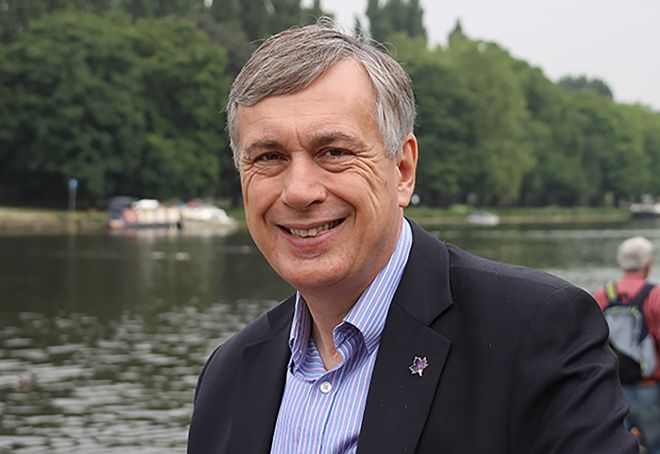 Dr David Mackintosh is retiring after 36 years at Kingston University
Dr David Mackintosh is retiring after 36 years at Kingston University
In 2009, David was promoted to Deputy Vice-Chancellor, a role he undertook for the next eight years, including a spell as Acting Vice-Chancellor in 2010, before being appointed Pro Vice-Chancellor and Dean of the then-Faculty of Science, Engineering and Computing in 2017. At various points he has been responsible for planning, portfolio development, quality assurance and enhancement, home and international student recruitment and student support.
After playing an active role in overseeing the return to campus following the pandemic, David took up the post of Dean of the then-joint Faculty of Health, Social Care and Education with St George's, University of London, leading on a project which led to the creation of two new Faculties at Kingston before latterly moving into his role as Pro Vice-Chancellor for Strategy when the Town House Strategy was launched in 2022.
"I've enjoyed all the roles I've held at Kingston, particularly my spells as a Faculty Dean and Deputy Vice-Chancellor," he said. "I've gone from the Faculty to the centre and back and really valued the interactions with colleagues and students from every area of the University."
Delivering the Strategy and importance of Future Skills
The Town House Strategy was named after the University's RIBA Stirling Prize-winning building, with David having witnessed its journey from initial conception to its recognition as the best new building in Britain and Europe. Following the launch of the Strategy, the University has now rolled out Future Skills across the first-year undergraduate curriculum, with Explore modules due to be embedded in all second-year courses from this September.
"The Town House is such an important building and represents a lot of what we are trying to achieve," he said. "My parents weren't professional people, they were very bright but both left school by 15. I didn't have anyone around me who could advise on academic or professional careers, so I had to work it out myself and didn't ask for help enough. My own experiences are part of the reason why I believe so strongly in Future Skills and the Town House Strategy. As well as ensuring every student on every course is equipped with the skills they will need to thrive after graduation, we are also striving for excellence – that aspiration for the University is so important and the Strategy is how we will get there."
Tributes paid to Dr Mackintosh's contributions
Paying tribute to David's contribution to the University since joining Kingston in 1988, Vice-Chancellor Professor Steven Spier said: "David has been through a career that has seen unprecedented change in higher education and in that time has held just about every role possible. I would like to thank him on behalf of so many people for his loyalty to, and affection for, the University and wish him all the best in retirement."
- Find out more about the Town House Strategy and Future Skills.
Contact us
General enquiries:
Journalists only:
- Communications team
Tel: +44 (0)20 8417 3034
Email us

